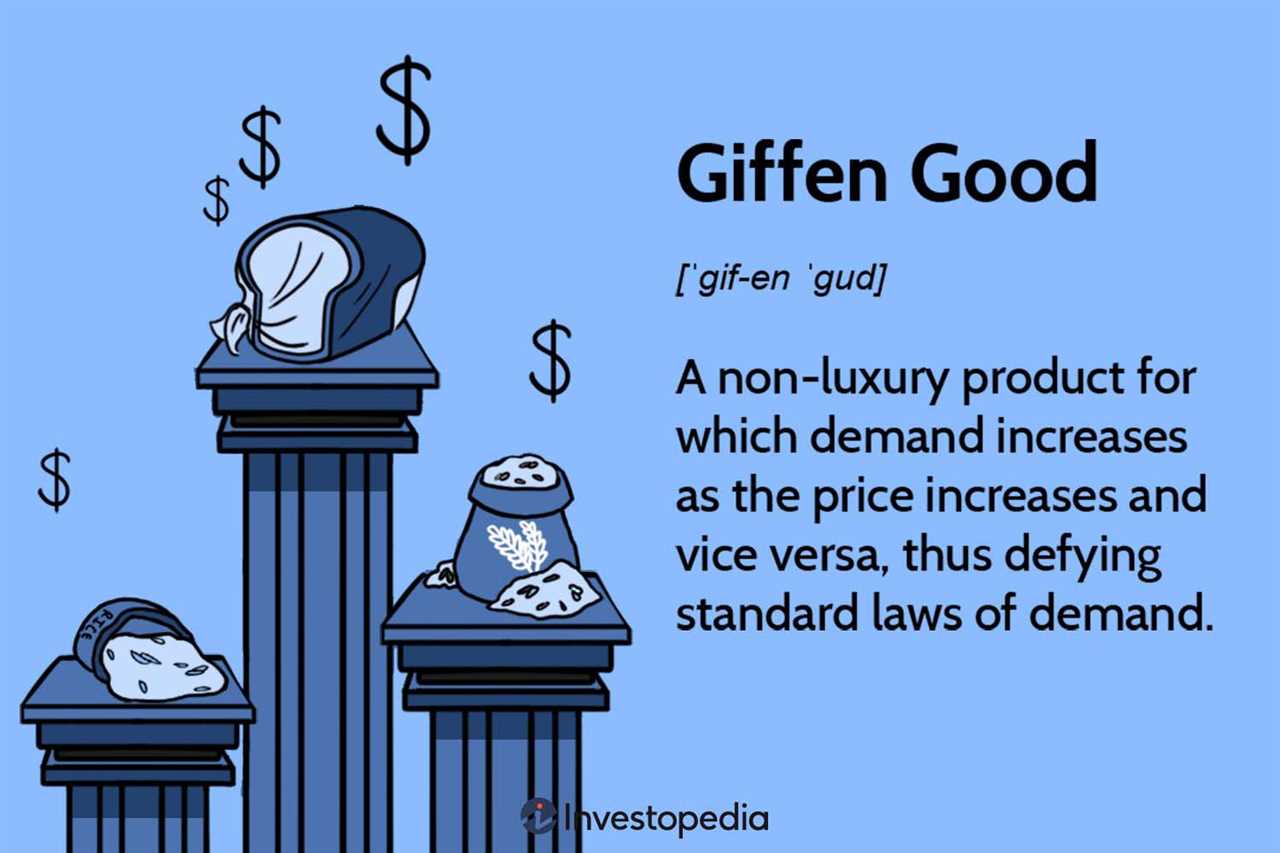Giffen Good Definition
Characteristics of Giffen Goods
There are several key characteristics that define a Giffen good:
- Lack of Substitutes: Giffen goods typically have a lack of close substitutes. This means that consumers do not have many alternative options to choose from when the price of the good increases. As a result, they continue to purchase the Giffen good despite the higher price.
- Income Elasticity: Giffen goods have a positive income elasticity of demand. This means that as consumers’ income increases, the demand for the Giffen good also increases, regardless of its price.
Examples of Giffen Goods
While Giffen goods are relatively rare, there are a few examples that have been observed:
What is a Giffen Good?

The Giffen Paradox
The Giffen paradox occurs when a good is considered a necessity and there are no close substitutes available. In such cases, consumers may be forced to allocate a larger portion of their income to purchasing the good, even as its price rises. This leaves them with less income to spend on other goods and services, leading to a higher demand for the Giffen good.
For example, imagine a scenario where a low-income household relies heavily on rice as a staple food. If the price of rice increases, the household may not have enough money to afford other food options, such as meat or vegetables. As a result, they may choose to buy even more rice, despite its higher price.
Factors Influencing Giffen Goods
Several factors can contribute to the existence of Giffen goods:
- Availability of Substitutes: Giffen goods are more likely to be found when there are no close substitutes available for the good in question.
It is important to note that Giffen goods are relatively rare and do not represent the typical behavior of goods in the market. They are considered exceptions to the law of demand and are often studied to better understand consumer behavior and market dynamics.
History of Giffen Goods
The concept of Giffen goods was first introduced by Sir Robert Giffen in the late 19th century. Giffen, an influential economist of his time, observed a peculiar phenomenon in the market for staple food items, such as bread and potatoes, in Ireland during the Great Famine.
During this period, the price of potatoes, which were the main staple for the Irish population, rose significantly due to a shortage in supply. As a result, people had to spend a larger portion of their income on potatoes, leaving less money for other goods. However, instead of reducing their demand for potatoes, the Irish population paradoxically increased their consumption of potatoes.
While Giffen goods are a fascinating concept, they are relatively rare in modern economies. The conditions necessary for the existence of Giffen goods, such as limited substitutes and extreme income constraints, are not commonly found in most markets. However, studying Giffen goods provides valuable insights into consumer behavior and the complexities of market dynamics.
Examples of Giffen Goods
Giffen goods are a rare phenomenon in economics, and finding real-life examples can be challenging. However, there have been a few instances where Giffen goods have been observed.
Another example of a Giffen good is rice in some parts of China. In certain rural areas, rice is the primary source of nutrition for the poor. When the price of rice increases, the poor are unable to afford other types of food and are forced to consume even more rice to meet their basic dietary needs.
| Example | Good | Price Increase | Quantity Demanded Increase |
|---|---|---|---|
| 1 | Potato during Irish Potato Famine | Shortage | Higher demand despite rising prices |
| 2 | Rice in certain parts of China | Price increase | Higher demand for rice |
| 3 | Inferior quality goods for low-income individuals | Price increase | Higher demand due to limited financial resources |

Emily Bibb simplifies finance through bestselling books and articles, bridging complex concepts for everyday understanding. Engaging audiences via social media, she shares insights for financial success. Active in seminars and philanthropy, Bibb aims to create a more financially informed society, driven by her passion for empowering others.
